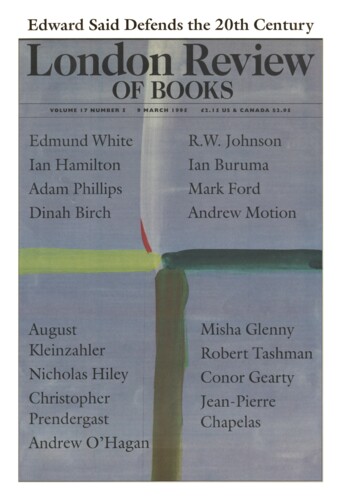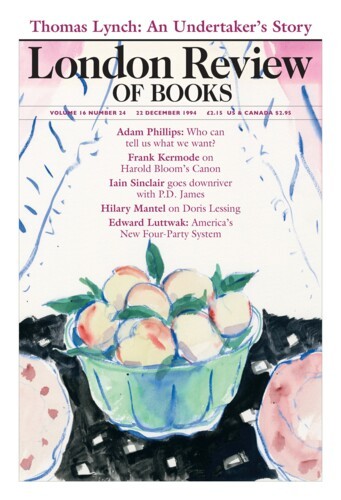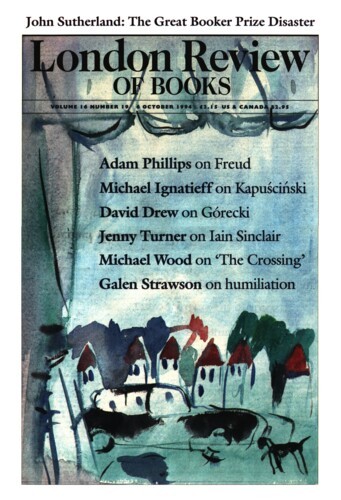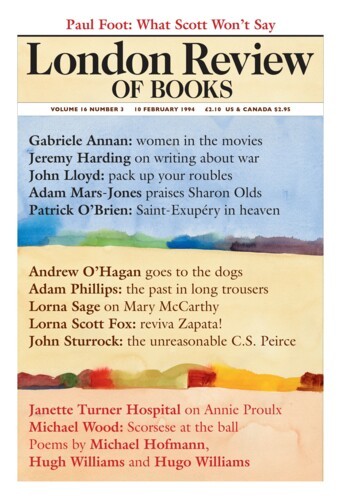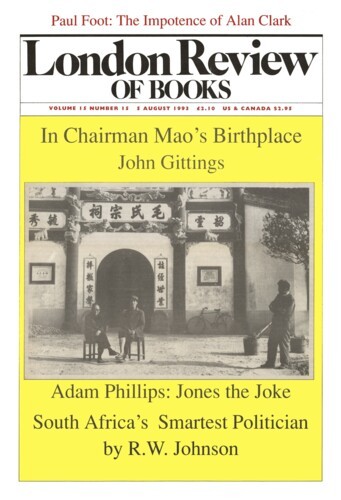Nicknames
Adam Phillips, 9 March 1995
Most psychoanalytic literature is a contemporary version of the etiquette book; improving our internal manners, advising us on our best sexual behaviour (usually called maturity, or mental health or a decentred self). It is indeed, dismaying how quickly psychoanalysis has become the science of the sensible passions; as though its aim was to make people more intelligible to themselves rather than to realise how strange they are. When psychoanalysis makes too much sense, or makes sense of too much, it turns into exactly the symptom it is trying to cure: defensive knowingness. But there is nothing like sexuality for making a mockery of our self-knowledge. In our erotic lives, at least, our preferences do not always accord with our standards. We are excited by the oddest things, and sometimes people.
